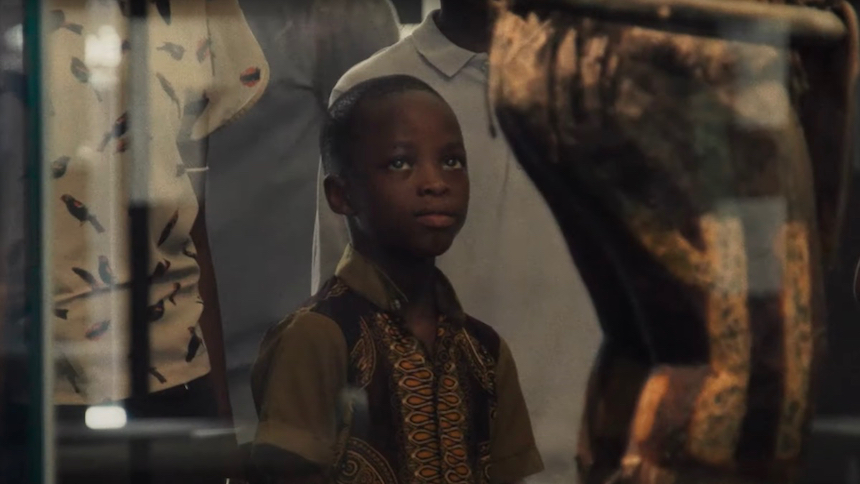New York 2024 Review: DAHOMEY, On Putting Souls Back
Mati Diop documents the repatriation of stolen African treasures from France.

Darkness. Then a booming female/male voice announces the journey to their homeland.
It's the voice of a statue, one of the 26 such artifacts France is sending back to its former colony, Benin. The statue was taken by French soldiers from the kingdom of Dahomey, 130 years ago.
The voice raises concerns about its return since it was uprooted from their homeland so long ago. It's made from the image of King Ghezo, who ruled the kingdom in the early 19th Century. It doesn't have a name. The name that was given for this occasion is 26, as in, the 26th statue that was chosen to make the journey back out of 7,000 artifacts that are currently in Europe after being taken from Benin.
Mati Diop, acclaimed French actor/director (Atlantics) with Senegalese ancestry, chronicles the journey of the artifacts step by step in Dahomey, beginning with handling and putting them into the wooden crates by workers, under the watchful eyes of artists and other cultural emissaries, painstakingly assessing the conditions of each wooden pieces of art. They comment on the significance of the events.
Diop’s camera joins the serious gaze of these officials and respectfully captures these large, awe inspiring objects — besides King Ghezo's likeness, there's King Glele as half-man, half-lion, King Béhanzin as half-man, half-shark. There are exquisitely carved thrones and doors of the kings taken from the Royal Palace of Abomey of the Dahomey kingdom. The return of these artifacts are the result of what came as calls mount in Africa for European countries to return the colonial spoils in their museums, universities and private collections.
As the large, magnificent artifacts are getting set up in Benin's Presidential Palace for exhibition, Diop cross-cuts the exhibition with the lively debates on the repatriation in a public forum among young people, in the background of bustling Cotonou, the capital of Benin.
The return is a direct result of a pressure campaign by local and international activists. In the forum, some liken the return to putting the souls back to these artifacts.
Still, some see it as a shrewd ploy by Macron and Patrice Talon, Benin's president, who are eager to score political points with the African populace. Some see it as an insult, with only 26 out of thousands being returned, and deem that celebration is premature.
For others, the return is welcome, but they understand that the repatriation of physical culture doesn't replace the intangible culture: song, dance and oral storytelling, which stood in place of the absence of these objects. Through these spirited debates, Diop captures the awakening national pride, questioning the remnants of the colonial education system, and even speaking French as the official language, when there are many different local languages spoken throughout the country.
No one can argue that the return is not a good start, though. It's reflected in the faces of the children when they see these treasures in person at the exhibition.
Dahomey is a spiritual heir to Alain Resnais and Chris Marker's 1953 essay film, Statues Also Die (1953), about how colonialism affected the way African Art is perceived, and also Abderramane Sissako's Bamako (2006), in terms of self-determination and awakening of African consciousness through debates in the globalized world. It's a hopeful avant-documentary that needs to be seen widely.
Dustin Chang is a freelance writer. His musings and opinions on everything cinema and beyond can be found at www.dustinchang.com
The film screens this week at the New York Film Festival.
Dahomey
Director(s)
- Mati Diop
Writer(s)
- Mati Diop
Cast
- Gildas Adannou
- Habib Ahandessi
- Joséa Guedje







